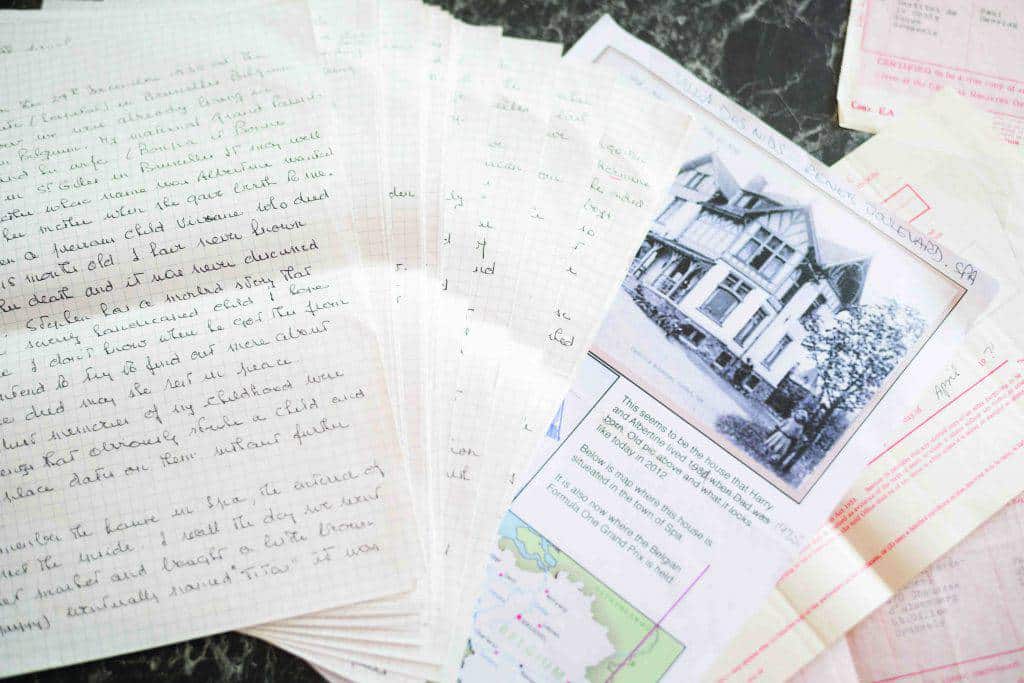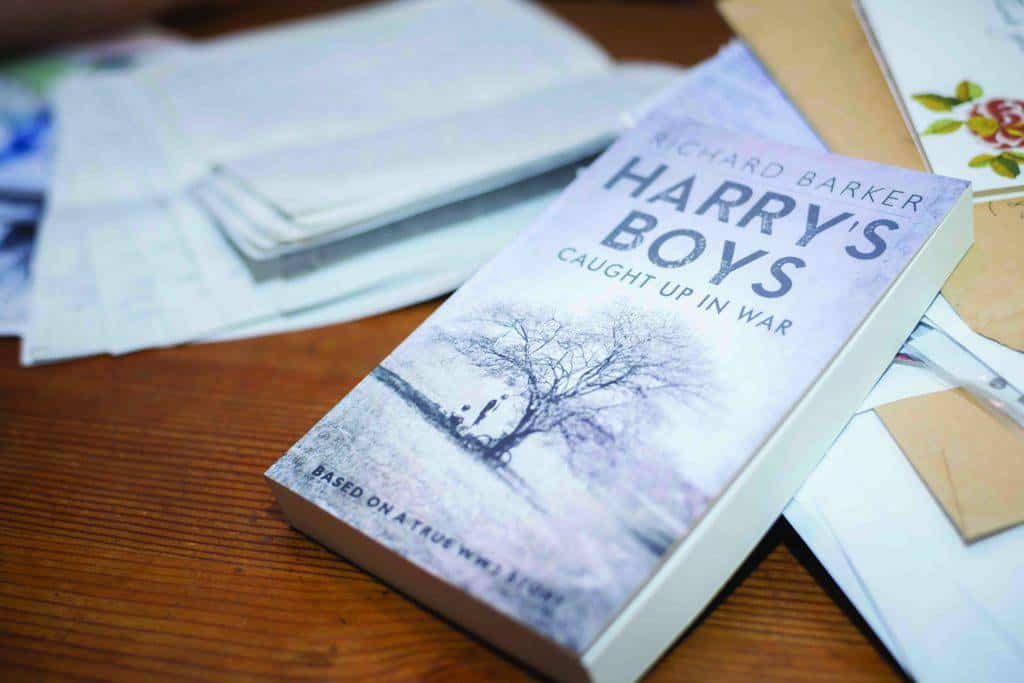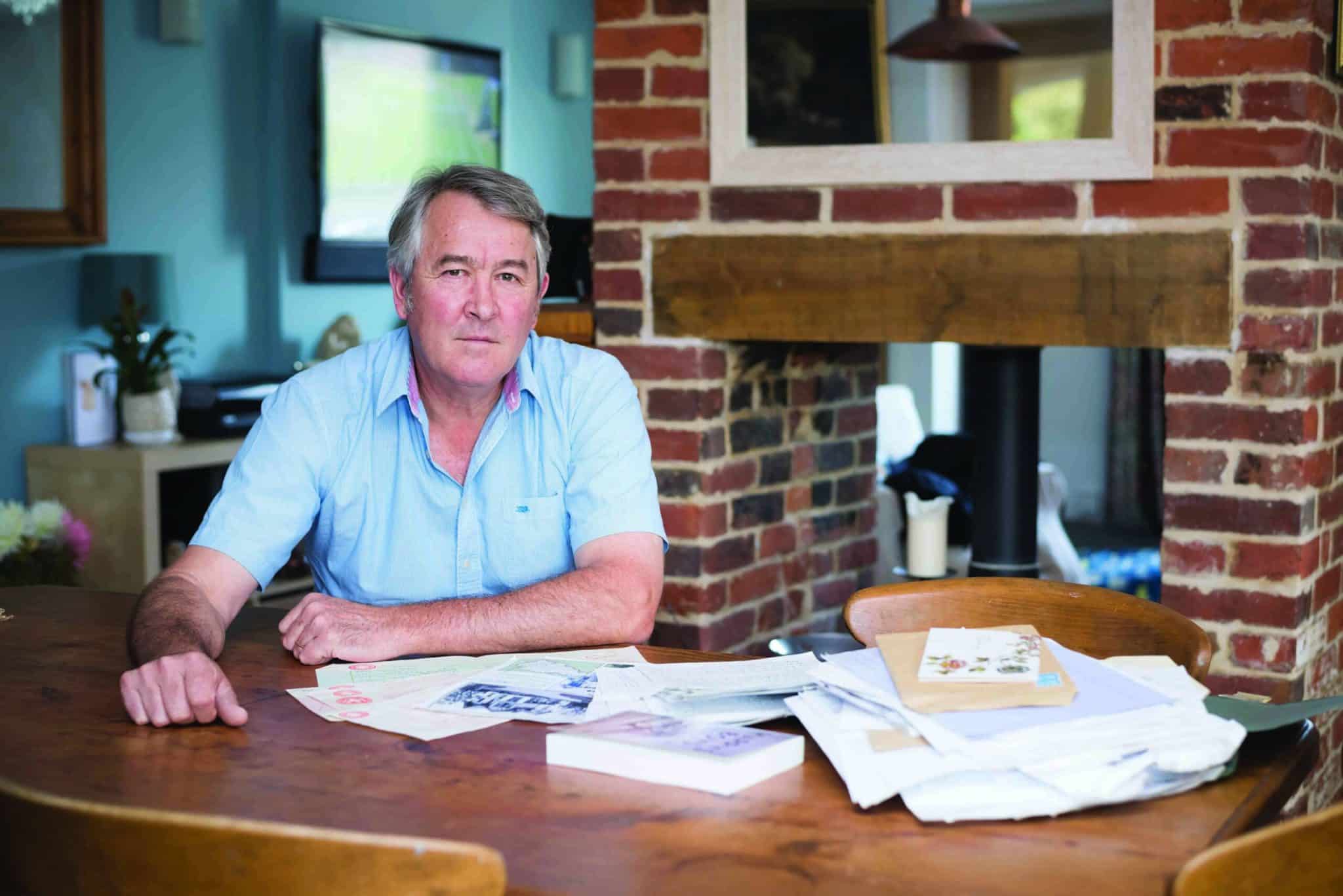Horsmonden’s Richard Barker has just had his first novel published. Entitled Harry’s Boys, it’s the true tale of what happened to his father, uncle and grandfather during World War II. Here, Richard reveals to Eileen Leahy why he decided to share their extraordinary story of trying to escape war-torn Europe for a life in England – at any cost…

This is your first book. Can you tell us how you came to write it?
It was only after my first child was born in 1987 that I became interested in my father Paul’s childhood. Up until then I knew nothing of where he was born, who his parents were, or what kind of childhood he’d had.
I asked him if he would write something down for me and he said he’d try, but nothing more was said.
After he passed away in 1992, aged 63, my mother handed me some notes he had written before he died. They were about his family, his childhood and what happened to him and his brother Stephen during the war.
When I read the 28 pages of handwritten notes I could not believe it. I was in tears as all sorts of things had happened to him, but he had said nothing. I decided then that, as soon as I had some time, I would find out more and write it down for my children, as they needed to know their grandfather’s story.
Can you give us a brief synopsis?
It revolves around Englishman Harry and his two young Belgian-born sons, Paul and Stephen, who are in Brussels when Hitler invades.
They must find a way to escape and head for the Channel. Unable to cross, they end up in a small fishing village in southern Brittany. The family are separated and Harry can do nothing to retrieve his sons.
He becomes an Air Raid Precaution [ARP] Warden in London whilst the boys suffer shortages of food and witness the persecution of the Jews and the viciousness of the occupying Germans. And the threat of recruitment into Hitler Youth sees the boys taken into hiding…
Did you find it easy to put pen to paper?
After I had read my father’s notes, I was very motivated to research and write the story in detail, but as he only talked very briefly about his experiences there was a lot to do!
I had absolutely no knowledge of his childhood, and did not know about my Belgian connection. I was born in Northern Rhodesia, now known as Zambia, and had only met my grandfather once when I was very young. When my family travelled by ship from Cape Town to England in 1972, both my father’s parents had passed away, so I never knew them or anything about them. Initial research led me to discover that my grandfather Harry was in fact one of ten brothers and sisters who were all born in Barnes, West London.
It was amazing to discover I had such a large family
How long did it take to write Harry’s Boys, and how did you find your inspiration to do so?
About eight years ago I had a little more time to spare, so my wife and I travelled around Europe to research my father’s story by visiting the places he’d written about. I knew he was English and could speak fluent French, but I had no idea why.
It was only after I read his notes that I found out my father was actually born in Brussels to a Belgian mother.
When I read how he happened to be in Brussels at the outbreak of World War II, and of his father’s efforts to try and escape the advancing German invasion, I just had to find out more.
How easy was it to piece the puzzles of the literary jigsaw together?
There were some things that were difficult to fathom. In his notes, for example, my father talked about his mother and father moving to a town in Belgium call ‘Sfra’. I searched high and low but could not find it, so I put out a message on the Find Family in Belgium blog saying I was looking for my grandmother, Albertine Barker (née Pollyn). Amazingly, some months later, I received a copy of her death certificate, and a picture of the house where my grandparents had lived in 1934, from a family history enthusiast.
It turns out they had moved to ‘Spa’ not ‘Sfra’. We had misread Dad’s handwriting!
Can you tell us what else you discovered for your story?
My father’s younger brother, Stephen, was also born in Brussels and later moved to Australia. It was an eerie feeling to tread in the footsteps of my father and grandfather when we visited the places Dad wrote about. If you watch Who Do You Think You Are? on television you see people reacting in a strange, emotional way when they find out something about their family. I really experienced this through doing my own research.
It must have helped to have tracked down your father’s brother?
Stephen was my only source of information to help fill in the gaps. Dad had been brief in his notes, saying things like: ‘I remember the death of my mother but don’t recall her funeral. Dad must have kept us away’. So I needed to research these events, but although there were some my uncle could help with, there were many he could not. He was only a young child in the early 1930s and could not recall much.
But it was amazing to fly out to Perth and spend time talking with him. We became good friends.
How easy, or indeed difficult, was it to find a publisher for your book?
It is nigh on impossible to find a publisher who will invest in an unknown author like myself.
I wrote to many, but had either no response or simply a refusal letter wishing me ‘good luck’ with my book.
It is a very competitive market, and even once you have found a publisher, getting into the bookshops is tough. My experience so far has been: ‘We do not stock any books that are not written by famous writers’.
It is disappointing but, like many things in life, you have to work at it. If you truly believe that your book is a good story and an interesting read, then my advice is to keep pushing!
Do you have a second book in you? If so, any ideas as to what you will write about next?
It is something I have been thinking about, but writing a book is a huge commitment. Working on this one has been an amazing journey; finding out about my family and reliving the experiences of my father. The research was fascinating and I enjoyed every moment, and in terms of writing another, well why not?
I have had some ideas, but let’s see how this one works out: Never say never is what I say.
Richard Barker will be undertaking number of signings over the next few weeks. To find out more, visit www.harrysboys.co.uk
Harry’s Boys is published by Pegasus, priced £9.99, and available from bookstores and Amazon








